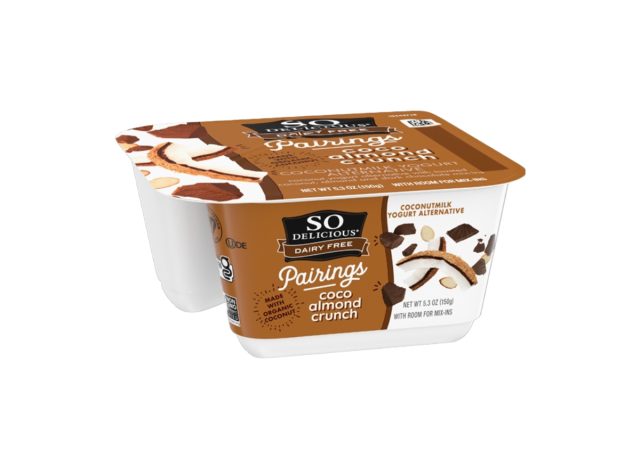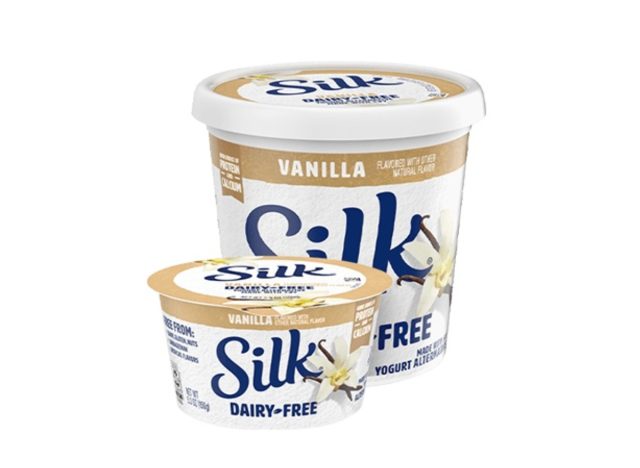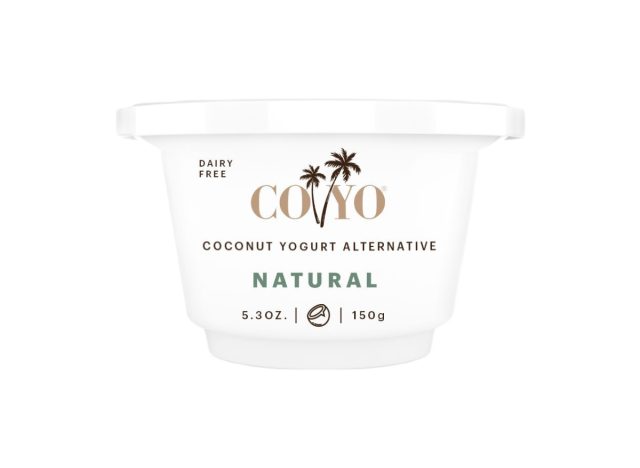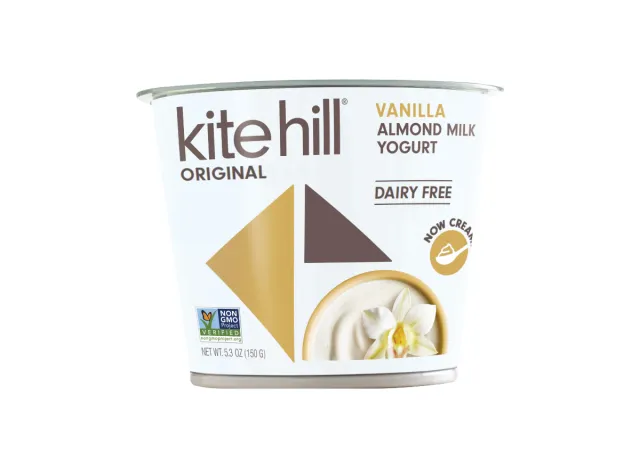4 Non-Dairy Yogurts To Stay Away From Right Now

The selection of yogurts in supermarkets is astounding. And no wonder, since Americans consume about $7.24 billions worth of the product, according to the latest numbers from Statista.
Not only does yogurt make a delicious base for breakfast or a midday snack, but the probiotics in milk cultures can also provide good bacteria for your gut, which has been found to positively impact your digestion, physical health, and mental wellness. As it turns out, you don’t have to eat dairy to get the benefits. Plenty of non-dairy yogurts add in live active cultures to help with regulating the gut microbiome.
And that’s encouraging news for consumers who might be sensitive to dairy. Amy Shapiro, MS, RD, CDN of Real Nutrition NYC explains, “If you have inflammation in your body including skin irritation, gas, bloating, digestive issues, then avoiding dairy would be a good idea. Substituting non-dairy yogurt for dairy yogurt is a great idea, and many are tasty and healthy.”
Depending on the quality of non-dairy yogurt, however, you could be swapping one problem for another. “They usually do not mimic each other nutritionally,” says Shapiro. “In non-dairy yogurts, you’ll often find added sugars to make them taste sweet, low protein levels because non-dairy yogurts are made from ingredients that are [naturally not] high in protein, high levels of saturated fat—especially if made from coconut products—and there will often be fillers or stabilizers of some sort to help with consistency.”
So how can you tell if you’re getting the best kind of dairy-free yogurt? By reading the nutrition facts, says Shapiro.
“What you should look for is sugar at less than 10 grams per serving, ideally around 6 grams,” she says. “Simple ingredients and an ingredient list that contains no gums, carrageenan, and color alternatives, or artificial sweeteners. Also, saturated fat should be less than 20% of the daily value on nutrition labels.”
To take it one step further, opt for the added fortification that dairy yogurts tend to have. Lisa Young, PhD, RDN, author of Finally Full, Finally Slim, nutritionist in private practice, and adjunct professor of nutrition at NYU advises to find a non-dairy yogurt that includes all the goodies: vitamin D, calcium, fiber, and protein.
Unfortunately, these four non-dairy yogurts didn’t meet our dietary guidelines, so you’d do well to pass on these. And for non-dairy milk you should avoid, read more here.
So Delicious Dairy Free Pairings Coco Almond Crunch Coconut Milk Yogurt Alternative

If you’re searching for a dessert, this yogurt is for you. The reason it’s “so delicious”—16 grams of added sugar. Besides the high sugar content, the ingredients in this coconut-based yogurt include gums and canola and safflower oils, which can cause inflammation. It doesn’t even come with a lot of satisfying protein, at only three grams per serving. It’s okay to have once in a while, but Shapiro advises against making this a regular part of your everyday breakfast.
Silk Vanilla Soymilk Dairy-Free Yogurt Alternative

Soy milk products can be a great alternative for those with nut allergies and want to skip the dairy, like Silk’s Vanilla Soy Milk yogurt. But since it contains 16 grams of added sugar per container, you can’t count on this option to do much for your diet. Your best bet? Find an unsweetened version of soy-based yogurt and drizzle your own honey to make it a little bit more exciting, but still healthy for you.
Coyo Coconut Yogurt Alternative

Coconut is a popular topping for Greek yogurt, so it makes sense to turn this tropical fruit into its own alternative. But Young warns against the first two ingredients, cream, and tapioca, and the high saturated fat content from the coconut cream means this yogurt is one to indulge in sparingly.
The Mayo Clinic says to limit saturated fat intake to no more than 10% of your total calories. For 2,000 calories, that’s around 22 grams—making this yogurt more than max out your saturated fat for the whole day with 36 grams per serving.
“I would recommend using half the container here instead of the whole container, unless you are following a strict Keto style diet,” says Shapiro.
Kite Hill Vanilla Almond Milk Yogurt

Vegans may know and love Kite Hill because the brand offers a wide range of animal product substitutes, like plant-based cream cheese, ravioli, queso, butter, and—you guessed it—yogurt. This one is made of almond milk and active cultures, but it also contains locust bean gum, xanthan gum, and 11 grams of added sugar. For Young, this is a yogurt you can skip. Kite Hill has a plain version with only 5 grams of sugar, so choose that over this flavored variety if you’re looking for a go-to non-dairy yogurt you can feel great about.









